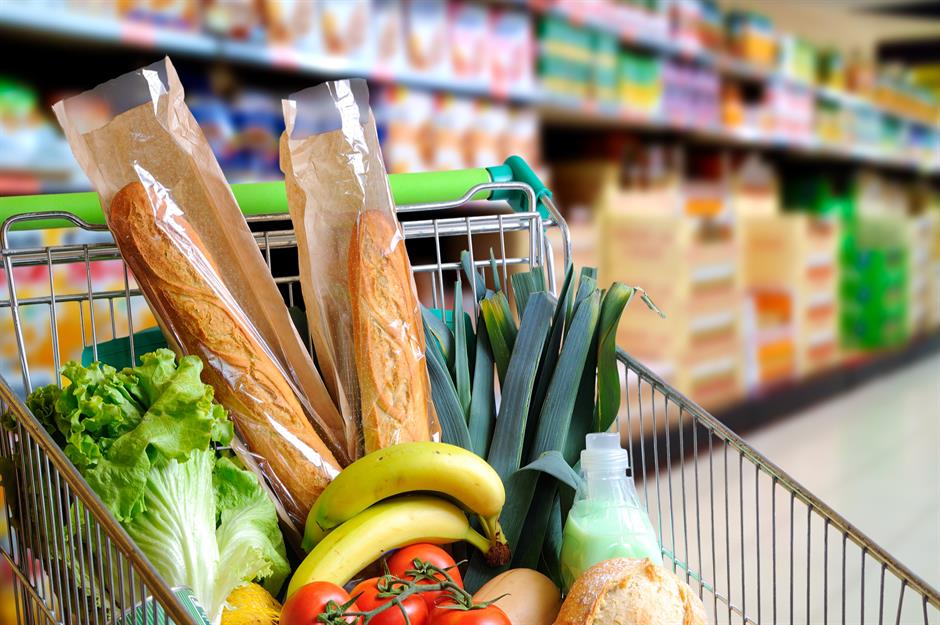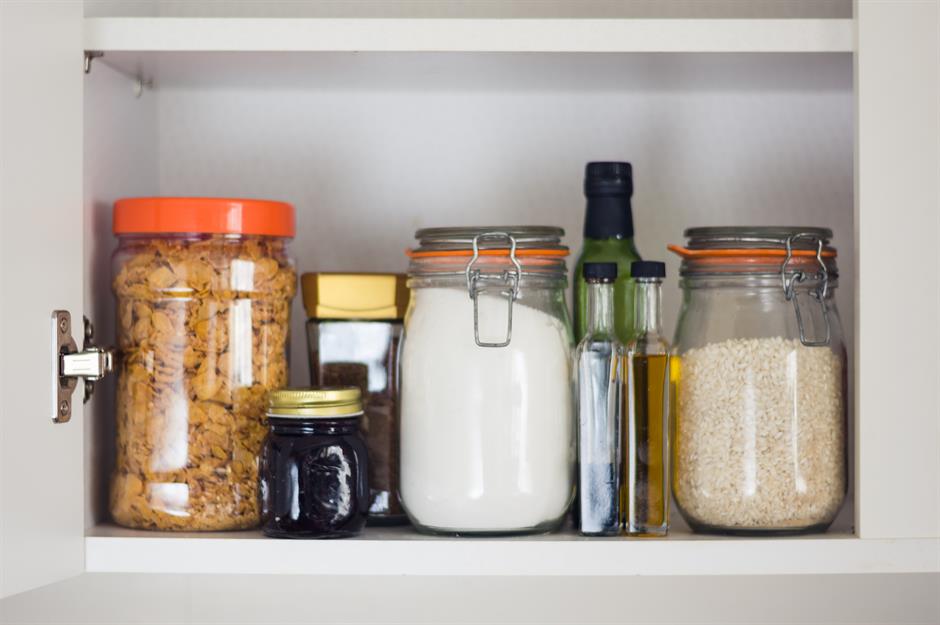Super savvy tips to cut your food bill in half
Get more for your money
Check what food you already have
Plan meals in advance
Planning meals in advance is an effective way to save money, avoid impulse purchases and stop food going to waste. Work out innovative ways to use the food already in your cupboards, what additional ingredients you need and how to use the same ingredients in a number of different meals. Check out our recipe page for inspiration for quick weeknight dinners.
Cook meals that use the same ingredients
Cook meals where you can buy ingredients once but use them two or three times throughout the week. For example, a roast chicken at the weekend can stretch throughout the week. Use leftover shredded meat into chow mein or gyros, then use the carcass to make stock for a comforting pot pie. Here are some more tasty recipe ideas to make ingredients go further.
Forget the weekly shop
Shop later in the day for reduced goods
Don't shop hungry
Shop around
Stick to your list
Once you’ve decided what you need, write up a list and don’t deviate from it. Supermarkets use tricks to encourage spending and impulsive buys, but stay focused and you'll likely just get what you need.
Don’t buy meal kits
Try own brands
Choose ugly vegetables
Stock up on cheap but filling foods
Stock up on hero ingredients
Expand your recipe repertoire by stocking up on extra ingredients that will help liven up basic meals. A dollop of yogurt or a handful of coriander (cilantro) are great additions to a curry, for example. Feta, seeds, sun-dried tomatoes, herbs and spices are all great ingredients to have on standby. Check out our top 11 secret ingredients that'll take your dish from hero to zero.
Don't be influenced by packaging
Avoid pre-chopped fruit and vegetables
Buy what's in season
Buy from the back of the shelf
Don’t be tempted by offers
Check the price by weight
Buy in bulk and freeze
Batch cook ahead of time
Learn some budget recipes
Learn some fail-safe budget recipes to fall back on when money is tight. Pasta and rice dishes, as well as soups, lentils and vegetable stir-fries are all cheap to make. Try satisfying tofu shashlik (pictured) or a brilliant one-pot cauliflower dhansak.
Cut down your meat intake
Meat is often the most expensive item in a shopping basket. You could save money by preparing more vegetarian meals and reducing chicken, pork and beef to just a few nights a week, plus it’s good for the environment and your health. Check out our recipe for sweet potato rösti with poached eggs (pictured), paneer korma and pumpkin cannelloni.
Go for cheaper cuts of meat
When you do buy meat, save money by opting for cheaper cuts such as beef brisket, skirt or flank, pork shoulder or belly, and lamb shoulder. Cook in a slow cooker with vegetables, stock and seasoning to transform inexpensive meat into delicious braised stews, curries or casseroles. Give this short rib noodle soup or pulled pork shoulder a go.
Cook from scratch
Some ready-made foods can be quite a bit cheaper to make from scratch, including granola, pesto, jams, chutneys, pickles and nut butters. Not only will you save money but homemade versions are often much nicer than shop-bought. We've got plenty of recipes like zingy pea and apple chutney, apricot and lavender jam or fruity granola bars.
Make packed lunches for work
Avoid waste by freezing fruit and vegetables
If it looks like you’re running out of time to finish off fresh produce, chop it up and put it in the freezer. Sliced onions, peppers, carrots and other vegetables can all be used later in stir-fries or stews. Frozen fruit such as bananas, strawberries and grapes are perfect for smoothies. You can even save herbs by mixing with oil and freezing in ice cube trays. Discover more ice cube tray hacks here.
Make the most of leftovers
Whether you've eaten at a restaurant or cooked at home, make sure your leftovers don't go to waste. For example, Sunday evening's pork roast can become Monday lunch time's bánh mì baguette. These are a few great leftover recipes to try.
Read more: 30 batch cook recipes to save you time and money
Get inspiration online
For daily inspiration, look up money-saving groups on Facebook and search for budget food bloggers. A couple of great sites to check out are Cooking on a Bootstrap, MOB Kitchen and $5 Dinners.
Read more: 26 hacks for packing the perfect lunchbox for kids
Make the most of money-saving apps
There are loads of apps available to download that help save money on grocery shopping. In America, USDA FoodKeeper tells you how to store food and drink safely, and its calendar function reminds you to defrost food before it goes off. OLIO, a hyperlocal food sharing app, allows you to connect with local shops and households giving away free food that would otherwise go to waste. Respond to a neighbour’s advert, arrange a time to pick it up and voilà, free supper.

